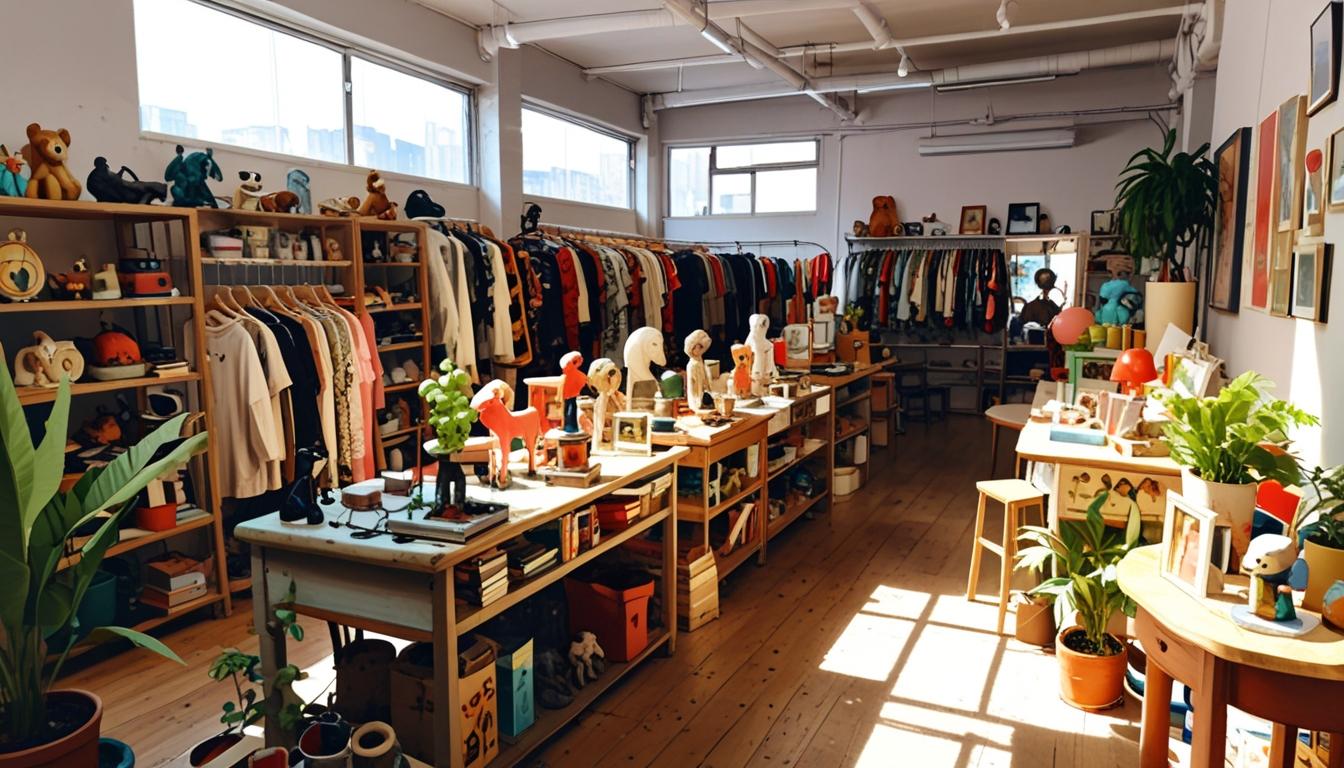A new survey reveals that nearly 80% of British shoppers are opting for second-hand items, driven by budget constraints and a focus on sustainability.
A recent survey conducted by the British Heart Foundation (BHF) has illustrated a significant shift in consumer behavior towards second-hand shopping in the UK. Released today, the survey indicates that nearly 80 percent of Brits now shop second hand at least once a month, marking a rise in the popularity of pre-loved items amid a growing cost-of-living crisis and heightened awareness of sustainability.
According to the findings, commissioned from Censuswide, 30 percent of respondents reported purchasing second-hand items on a weekly basis. The data shows that 42 percent of shoppers actively check for second-hand options before considering new purchases, with 38 percent choosing to delay a purchase to find a second-hand alternative instead of buying new.
The survey highlights that, on average, participants engage in second-hand shopping about four times per month, with motivating factors including financial savings (57 percent) and environmental considerations (32 percent). A backup trend noted is that 22 percent of participants are now looking for second-hand items as a way to find more affordable replicas of higher-priced branded goods.
In terms of shopping preferences, furniture and homeware lead the way, with 47 percent identifying these categories as their primary focus. This is followed by clothing at 37 percent and children’s toys at 15 percent. Furthermore, the survey revealed that most participants have an average of five pieces of second-hand furniture and six homeware items in their homes, while a notable 35 percent plan to buy more pre-loved furniture within the year.
Particularly among Gen Z respondents, there was a distinct inclination towards second-hand furniture, with this demographic averaging eight items—significantly more than the three pieces typically owned by Baby Boomers and members of the Silent Generation.
This survey launch coincides with the beginning of the “Reuse Revolution” month, a campaign by the BHF aimed at raising awareness regarding the advantages of shopping second-hand. The initiative seeks to promote the recycling of quality goods, reduce landfill waste, and support funding for critical heart research.
Sales data from BHF’s 680 charity stores across the UK further reveals regional trends in second-hand shopping. Edinburgh residents have shown a strong preference for purchasing pre-loved beds, while Bristol leads in comic book purchases. Hove tops the list for children’s books, and Weston-Super-Mare has the highest sales of washing machines. The data also highlights market preferences in Southampton, Stockport, and East Kilbride, with shoes, retro records, and Mills and Boon novels, respectively, leading their local second-hand sales.
Allison Swaine-Hughes, Retail Director at the British Heart Foundation, expressed enthusiasm for the growing trend of second-hand shopping. Speaking to Charity Today News, she noted, “We at the British Heart Foundation love that we’re becoming a nation of pre-loved, savvy shoppers, and we’re not surprised! We know our customers love shopping in our stores and online…”
In 2022, the BHF reported its efforts led to the saving of over 54,000 tonnes of goods from waste, including a remarkable 186,000 sofas and armchairs. The ongoing campaign is inviting the public to engage in shopping, upcycling, or donating second-hand items to contribute to sustainable practices and support lifesaving heart research.
Source: Noah Wire Services





One Comment